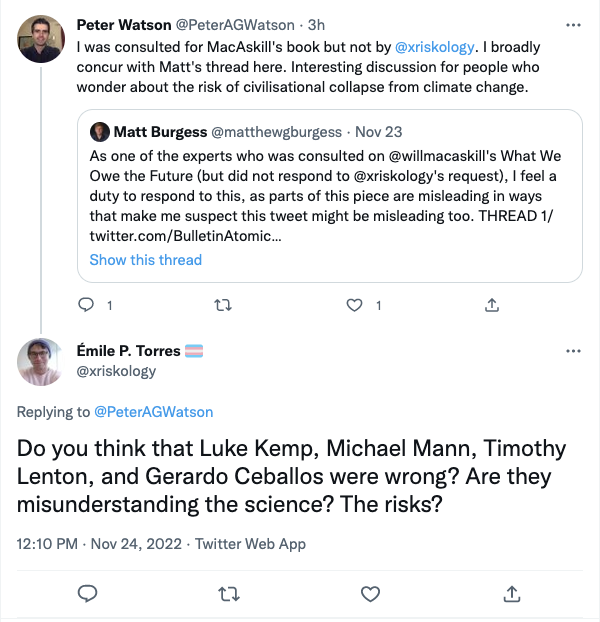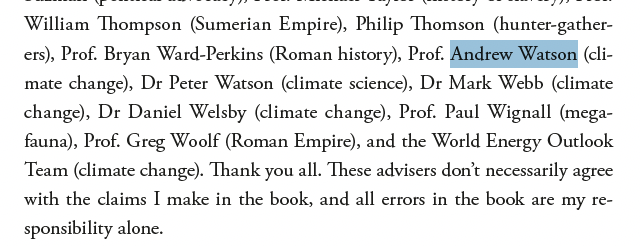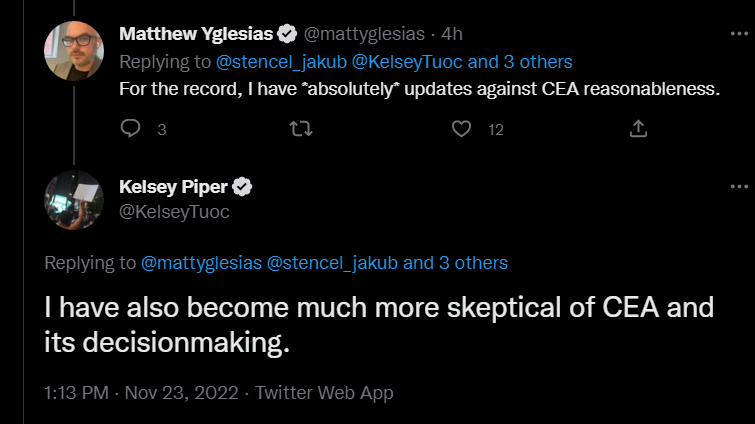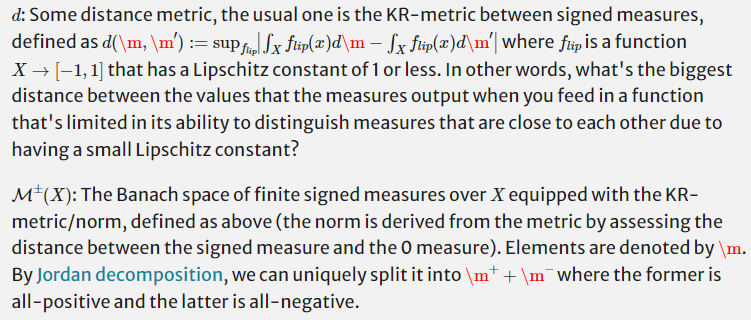Tldr: This is a letter I wrote to the Climate Contributing Editor of the Bulletin Atomic Scientists, Dawn Stover, about Emile Torres' latest piece criticising EA. In short:
- In advance of the publication of the article, Ms Stover reached out to us to check on what Torres calls their most "disturbing" claim viz. that Will MacAskill lied about getting advice from five climate experts.
- We showed them that this was false.
- The Bulletin published the claim anyway, and then tweeted it.
- In my opinion, this is outrageous, so I have asked them to issue a correction and an apology.
Update: The Bulletin has declined to correct the piece or issue an apology. They say that the editor's note provides 'balance' for the reader. They haven't explained how their false tweet remains acceptable. By these standards, media outlets don't have to correct false claims in articles, they just have to include editor's notes contradicting the false claims. There are apparently no constraints on what media outlets are permitted to tweet.
Dear Ms Stover,
I have long admired the work of the Bulletin of the Atomic Scientists. However, I am extremely disappointed by your publication of the latest piece by Emile Torres.
I knew long ago that Torres would publish a piece critical of What We Owe the Future, and on me following my report on climate change. However, I am surprised that the Bulletin has chosen to publish this particular piece in its current form. There are many things wrong with the piece, but the most important is that it accuses Will MacAskill and his research assistants of research misconduct. Specifically, Torres contends that five of the climate experts we listed in the acknowledgements for the book were not actually consulted.
Ms Stover: you contacted us about this claim in advance of the article’s publication, and we informed you that it was not true. Overall, we consulted around 106 experts in the research process for What We Owe The Future. Torres suggests that five experts were never consulted at all, but this is not true — as Will stated in his earlier email to you, four of those five experts were consulted. I am happy to provide evidence for this. The article would have readers think that we made up the citations out of thin air. One of them was contacted but didn’t have time to give feedback, and was incorrectly credited in the acknowledgements, which we will change in future editions: this was an honest mistake. The Bulletin also went on to tweet the false claim that multiple people hadn’t been consulted at all.
The acknowledgements are also clear that we are not claiming that those listed checked and agreed with every claim in the book. Immediately after the acknowledgements of subject-matter experts, Will writes: “These advisers don’t necessarily agree with the claims I make in the book, and all errors in the book are my responsibility alone.”
To accuse someone of research misconduct is a very serious allegation. After you check it and find out that it is false, it is extremely poor form to let the claim go out anyway and then to tweet it. The Bulletin should issue a correction to the article, and to the false claim they put out in a tweet.
I also have concerns about the nature of Torres’ background work for article — they seemingly sent every person that was acknowledged for the book a misleading email, telling them that we lied in the acknowledgements, and making some reviewers quite uncomfortable.
To reiterate, I am very disappointed by the journalistic standards demonstrated in this article. I will be publishing something separately about Torres’ (as usual) misrepresented substantive claims, but the most serious allegation of research misconduct needs to be retracted and we need an apology.
(Also, a more minor point: it's not true that I am Head of Applied Research at Founders Pledge. I left that role in 2019.)
John





I both agree with you here that there is something particularly risky about using these kinds of concepts in public discussions, since people often have an actively wrong understanding of what different things actually mean, but I also feel like this is a pretty different standard than we apply in almost all other domains of discourse.
Like, if a bunch of people make posts that rely on advanced math or physics or chemistry knowledge, as many posts both here and on LW tend to do, I don't think I would tell people to stop that because most of the audience wouldn't understand what is going on. It seems indeed quite valuable for people with the relevant knowledge to say what they want to say, even if they can't bridge the full inferential distance to others.
I understand that part of the reason for additional hesitation here is that these concepts then also often get used to attack people, and these concepts are more loaded with connotations than other concepts, and misunderstandings are more prevalent, but I still think it's then important to at least recognize that we are losing some important communication here.
I personally try to avoid terms like "psychopath" as much as possible, because of a bunch of misunderstandings in the space, but other things like "bipolar" seem to have fewer misunderstandings and I think are pretty OK to use. "Autism" seems bad in some context, but I feel like is pretty okay to discuss in the forum context.